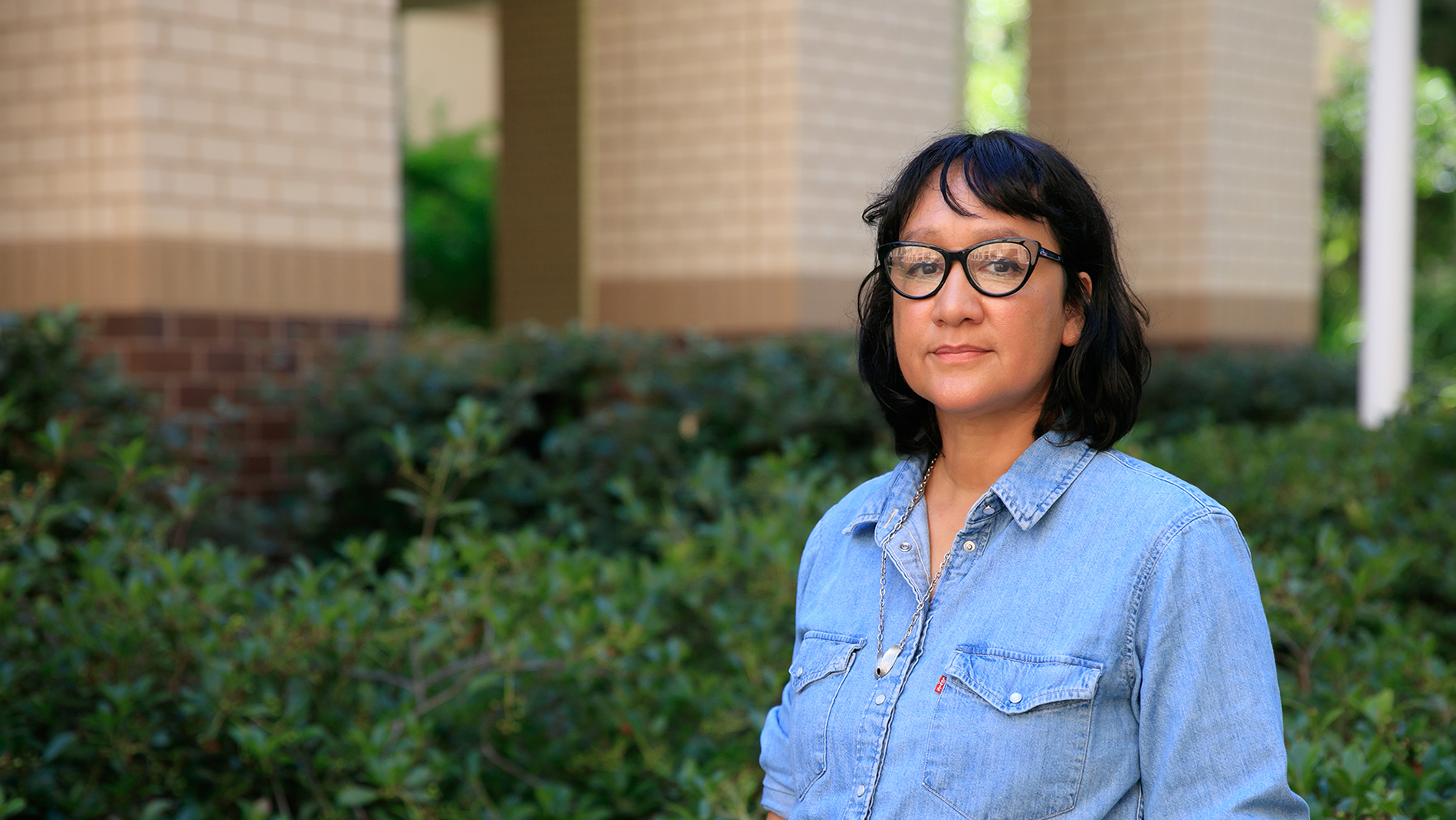
Getty Scholar Romero to spend nine months working on book at stunning museums
For the 40th anniversary of the Getty Scholars Program, the Getty Research Institute selected 11 academics from around the world to be in residence in Los Angeles for the 2025/2026 fellowship cycle exploring the theme of repair, including one from UC Irvine: Mercy Romero.
The associate professor of criminology, law & society is among four fellows who will be in residence at the Getty Center and Getty Villa from September through June 2026. Others in Romero’s cohort have residencies of three to six months.
The cohort includes professors of architecture from Columbia University’s Barnard College; comparative literature and gender studies from Columbia University; environmental arts and justice from York University in Ontario, Canada; archaeology from Brown University, the University of Pennsylvania and Ghana; and art/art history from USC, Vassar College, University of Rochester and Université de Namur in Belgium. The cohort also includes postdocs, who like Romero will be in residence the full nine months. They hail from NYU, Harvard, Princeton, Columbia, Ohio State and UC San Diego.
Getty Research Institute (GRI) also selected two guest scholars, a president’s scholar and two “connecting art histories” scholars, who will also explore the repair theme with residencies ranging from three to nine months.
“I’m looking forward to all of it — meeting new people at the Getty Center and sharing and learning from them,” Romero says. “I am looking forward to being with new landscapes, and I wonder how that will shape my work. I’m looking forward to writing and making something beautiful.”
The author of an award-winning first book, Toward Camden (Duke University Press, 2021), will spend her Getty fellowship on her follow-up, Farewell: Black Nursing, Hospital Planning, and the Reparative Arts.
“This project builds from a central curiosity about the Puerto Rican poet Julia de Burgos and uses archives to understand the hospital as a site of creative convergence–between Black nurses trained to work and care for patients during a time of Jim Crow segregation, to the architect and artists spatializing wellness in lines and angles, poetry and song toward public health outcomes,” Romero explains.
The GRI calls repair a “timely topic” that “invites critical engagement with a range of art and cultural forms across disciplines, geographies, and historical periods.” Romero sees a natural fit for Farewell: Black Nursing, Hospital Planning, and the Reparative Arts in that description.
“The project and my larger questions as a writer hold repair in lots of ways–from the concern with illness, confinement, and dispossession, to the condition, extraction and restoration of WPA era murals that were once a part of a hospital I am studying,” she says, referring to the Works Progress Administration program that President Franklin Roosevelt launched in 1935.
“I am curious about repair as a structure that holds the depth of use and longing,” Romero adds. “I consider repair as a writer and a survivor of broke thinking, from the logics of American empire to private property.”
Searching for interdisciplinary fellowships with seminar components, she landed on the Getty Scholars program.
“I was a scholar in residence at the Schomburg some years back when I was beginning this work and that was so wonderful,” says Romero of the New York Public Library program. “I was inspired to keep thinking about the research and writing of this work in community. After I was awarded the fellowship, I met with the director of the program and felt super humbled. They understood what I was up to and were excited about it. Besides the time and the residency, that was the gift — having the project read, valued, and encouraged.”
Since its inception in 1985, the Getty Scholars Program has supported about 1,300 academics and researchers from more than 50 countries, providing a collaborative space for inquiry and exchange at the GRI’s beautiful facilities on a Brentwood hilltop and along the Malibu coast.
“As we celebrate four decades of supporting pioneering scholarship, this year’s theme of repair feels especially urgent and universally resonant,” says Alexa Sekyra, head of the GRI Scholars Program, in a release. “In a time marked by cultural reckoning and environmental fragility, we are proud to support scholars whose work not only deepens our understanding of the past but also envisions new ways forward for preservation, justice, and renewal through the arts.”
In addition to the GRI's program oriented around the theme of repair, other scholars and professionals will be hosted by the Getty Scholars Program at the Villa under the theme of religious experience in antiquity as well as the Getty Conservation Institute.
— Matt Coker